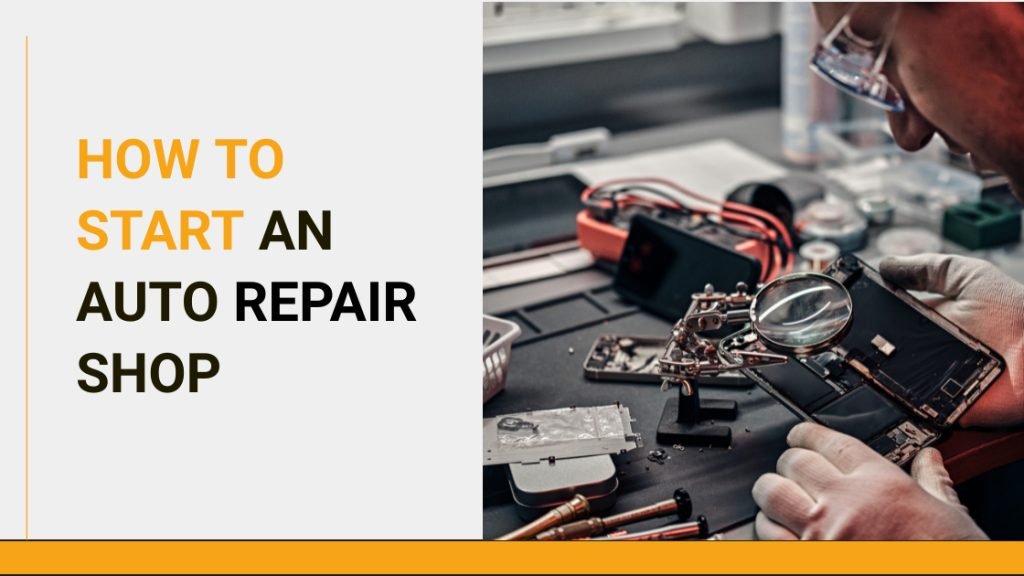Have you ever marveled at the inner workings of a car engine, fascinated by the symphony of moving parts and the intricacy of its design? Do you find yourself eagerly helping friends and family with their vehicle troubles, relishing the challenge of diagnosing and fixing mechanical issues?
If your passion for automobiles runs deep and you yearn to turn your knack for problem-solving into a rewarding career, then becoming an automotive technician might just be the perfect road to travel.
In this blog post, we’ll dive into the nitty-gritty details of how to become an auto mechanic. So, buckle up and get ready to accelerate your knowledge and skills on the path to becoming a proficient auto mechanic.
How To Become A Mechanic?
From acquiring a high school diploma through vocational schools to gaining hands-on experience and obtaining certifications, let’s rev up your knowledge to become a successful mechanic!
1. Get A Highschool Diploma
While some may believe that mechanical expertise can be honed solely through hands-on experience, a diploma through trade school lays the groundwork for a successful career as an auto mechanic.
Why Is It Important?
Well, consider this: modern vehicles are becoming increasingly complex, integrating advanced technologies and computerized systems. To comprehend these intricacies and troubleshoot effectively, a solid educational foundation is vital for the maintenance of vehicles.
What To Study?
During your high school education, focus on subjects like mathematics, physics, and English. Mathematics will sharpen your problem-solving skills, allowing you to calculate measurements, diagnose issues, and interpret technical diagrams.
Understanding algebra and geometry will come in handy when dealing with calculations for engine performance, suspension alignment, and electrical circuits at auto shops.
In addition to these core subjects, consider taking elective courses that can complement your future career as an auto mechanic.
Courses in automotive technology or shop class, if available, can provide hands-on experience with basic repairs, maintenance procedures, and the proper use of tools on actual vehicles fulfilling the requirements for an auto mechanic.
Moreover, participating in extracurricular activities such as automotive clubs or competitions can further fuel your interest and provide opportunities to network with professionals in the field. Attending industry events, vocational programs, or job fairs can also open doors to apprenticeships, internships, or formal training opportunities.
These courses can help you develop an early passion for working on motor vehicles and expose you to the practical aspects of the automotive industry.
Remember, becoming an auto mechanic is a lifelong journey of learning and honing your skills. So, embrace your high school education, seize every opportunity to expand your knowledge, and get ready to rev your engines for an exciting career in the automotive world!
2. Hands-On Experience
While a high school diploma lays the foundation for your automotive knowledge, gaining hands-on experience is where rubber truly meets the road. You’ll also learn how to use mechanic tool sets at this stage.
Why Is It Important?
Working in a real-world garage environment will provide you with practical skills, problem-solving abilities, and a deep understanding of automotive systems.
It’s an opportunity to apply your theoretical knowledge to real-life scenarios and develop the intuition required to diagnose and fix vehicles.
Where Can You Get This Experience?
To kick-start your hands-on experience, consider seeking entry-level positions, apprenticeships, or internships at local repair shops, dealerships, or even automotive manufacturers to learn customer service.
These opportunities allow you to immerse yourself in the world of auto mechanics, learning from experienced professionals and absorbing their wealth of knowledge.
During your hands-on experience, be prepared to start with tasks using basic tools such as oil changes, tire rotations, and filter replacements.
While these tasks may seem mundane, they form the building blocks of your mechanical expertise and are part of the routine maintenance of vehicles.
Pay attention to every detail, as even the seemingly simple tasks involve specific procedures, tools, and techniques that are essential for a successful outcome.
Additionally, take advantage of any specialized training programs or workshops offered by employers or industry organizations. These opportunities can provide you with focused knowledge and hands-on training in specific areas such as engine diagnostics, electrical systems, or advanced diagnostic tools.
In the ever-evolving automotive industry, hands-on experience is the engine that propels your career forward. Embrace each opportunity, challenge yourself, and stay hungry for knowledge.
3. Get Certifications
As an auto mechanic, certifications are the fuel that propels your career to new heights. These industry-recognized automotive repair shop credentials validate your skills, knowledge, and dedication to professionalism.
Why Is It Important?
Not only do they enhance your credibility among employers and customers, but they also open doors to higher-paying positions and advancement opportunities.
Here are some key certifications to consider:
1. ASE Certifications
The National Institute for Automotive Service Excellence (ASE) offers a comprehensive range of certifications that cover various automotive systems and specializations.
These certifications validate your competence in areas such as engine repair, brakes, electrical systems, suspension and steering, and more for different types of vehicles.
ASE certifications are widely respected and recognized throughout the industry, providing a valuable mark of distinction for your skills and a source of comfort for vehicle owners.
To earn an ASE certification, you’ll need to pass a rigorous examination that assesses your knowledge and proficiency in specific areas such as brake systems and fuel systems.
Consider starting with the ASE Automobile & Light Truck Certification (A-Series) to demonstrate your overall competency.
As you gain experience and expertise, you can pursue additional certifications in specialized areas that align with your interests and career goals.
2. Manufacturer-Specific Certifications
Many automobile manufacturers offer specialized training programs and certifications for their specific vehicle models.
These certifications delve deep into the intricacies of a particular brand’s systems and technology, making you a sought-after specialist for repairing and maintaining those vehicles.
Manufacturers such as Ford, General Motors, Toyota, and BMW provide training courses and certification programs that cover everything from advanced diagnostics to specialized repair techniques at technical colleges.
These certifications showcase your brand-specific knowledge and expertise, making you an asset to brand-specific dealerships or service centers and increasing your job prospects.
3. EPA Section 609 Certification
With the increasing prevalence of air conditioning systems in modern vehicles, understanding how to handle automotive refrigerants is essential in your automotive training.
The EPA Section 609 Certification ensures you are well-versed in the proper procedures for refrigerant handling, preventing environmental damage, and staying compliant with regulations.
This certification focuses on the safe and responsible handling of refrigerants, including knowledge of leak detection, refrigerant recovery, recycling, and disposal.
It is a legal requirement for any mechanic who performs air conditioning system service or repairs for an air systems-related auto mechanic career.
4. Continued Learning and Specializations
The automotive industry is constantly evolving, with new technologies and advancements emerging. Stay ahead of the curve by participating in continued learning opportunities such as workshops, seminars, and online courses.
These learning experiences not only keep you updated on the latest industry trends but also allow you to specialize in emerging areas such as hybrid and electric vehicles, advanced diagnostics, or specific automotive systems.
Consider seeking out specialized certifications or training in these niche areas to broaden your expertise and stay competitive with the majority of auto mechanics.
By showcasing your commitment to continuous learning and staying at the forefront of technological advancements, you’ll position yourself as a valuable asset to employers and clients.
Conclusion
These milestones pave the way to success in the dynamic and rewarding field of automotive mechanics. With a high school diploma, you’ll have a solid educational foundation to tackle the complexities of modern vehicles.
Courses in mathematics, physics, and English will sharpen your problem-solving skills, enhance your understanding of automotive systems, and equip you with effective communication abilities.
Hands-on experience is where you’ll truly fine-tune your skills and become a master mechanic. Through internships, apprenticeships, and entry-level positions, you’ll have the opportunity to work alongside experienced mechanics, learning from their expertise and gaining practical insights into the inner workings of vehicles.
ASE certifications are the industry’s gold standard, showcasing your expertise in specific automotive systems. By becoming ASE certified, you’ll stand out from the competition and demonstrate your commitment to excellence.
Additionally, manufacturer-specific certifications and EPA Section 609 Certification will make you a sought-after specialist and ensure your compliance with environmental regulations.
Stay up to date with the latest advancements in the automotive industry, invest in specialized training, and embrace emerging technologies such as hybrid and electric vehicles. By doing so, you’ll position yourself as a valuable asset in an ever-evolving automotive service technician industry.
So, don’t wait at the starting line. Fuel your passion for cars, ignite your ambition, and embark on a journey as an auto mechanic. With a high school diploma, hands-on experience, and industry-recognized certificate programs, you’ll be on the fast track to a fulfilling and prosperous career while providing automotive service excellence. You can also start your own mobile mechanic business with knowledge and experience.



